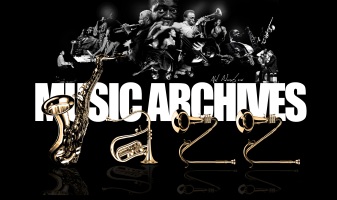
 |
Charlie Watts, the Rolling Stones’ Drummer Dead |
Post Reply 
|
| Author | |
Cannonball With Hat 
Forum Senior Member 
VIP Joined: 10 Apr 2011 Location: The Opium Den Status: Offline Points: 1212 |
 Post Options Post Options
 Thanks(0) Thanks(0)
 Quote Quote  Reply Reply
 Topic: Charlie Watts, the Rolling Stones’ Drummer Dead Topic: Charlie Watts, the Rolling Stones’ Drummer DeadPosted: 06 Sep 2021 at 1:00am |
|
RIP
|
|
|
Hit it on Five.
Saxophone Scatterbrain Blitzberg Stab them in the ears. |
|
 |
|
snobb 
Forum Admin Group 

Site Admin Joined: 22 Dec 2010 Location: Vilnius Status: Offline Points: 30581 |
 Post Options Post Options
 Thanks(0) Thanks(0)
 Quote Quote  Reply Reply
 Posted: 24 Aug 2021 at 12:17pm Posted: 24 Aug 2021 at 12:17pm |
Charlie Watts, the Rolling Stones’ Drummer and Inimitable Backbone, Dead at 80Rock & roll legend “passed away peacefully in a London hospital earlier [Tuesday] surrounded by his family,” according to publicist Charles Robert “Charlie” Watts, the Rolling Stones’ drummer and the band’s irreplaceable heartbeat, has died at age 80. Watts’ publicist confirmed his death in a statement. “It is with immense sadness that we announce the death of our beloved Charlie Watts,” it read. “He passed away peacefully in a London hospital earlier [Tuesday] surrounded by his family.” The statement referred to Watts as “one of the greatest drummers of his generation” and closed by requesting that “the privacy of his family, band members, and close friends is respected at this difficult time.” Watts’ death comes several weeks after it was announced that the drummer would not be able to perform on the Rolling Stones’ No Filter Tour of U.S. stadiums. “Charlie has had a procedure which was completely successful, but his doctors this week concluded that he now needs proper rest and recuperation,” a rep for the band said in a statement at the time. “With rehearsals starting in a couple of weeks, it’s very disappointing to say the least, but it’s also fair to say no one saw this coming.” It was hard to imagine the Stones without Watts even then, though. His light touch, singular rhythmic sense, and impeccable feel, as heard on canonical rock songs such as “Paint It, Black,” “Gimme Shelter,” and “Brown Sugar,” made him both the engine that powered the Stones’ music and one of the most famous and respected drummers of all time. As Keith Richards said in 1979: “Everybody thinks Mick and Keith are the Rolling Stones. If Charlie wasn’t doing what he’s doing on drums, that wouldn’t be true at all. You’d find out that Charlie Watts is the Stones.” And yet, Watts was very different from the rest of the Stones. His dapper dress sense — Vanity Fair elected Watts to the International Best Dressed List Hall of Fame — was ultimately more in line with the jazz he loved and sometimes played than rock & roll. Watts also famously remained faithful to Shirley Shepherd, his wife since 1964, which set him somewhat apart from his excessive, hard-partying bandmates. Unlike born road warriors such as Keith Richards, Watts often seemed uninterested in touring and gave the distinct impression the Stones was a job more than a calling or a lifestyle choice. His battle with drugs and alcohol in the mid-Eighties was, like many things about the man, largely private. “I’m big on letting people do what they want, which doesn’t make for good bandleaders,” he told Rolling Stone in 1991. “If I had led the Rolling Stones, they wouldn’t have gotten anywhere. We’d still be running around trying to find an amp, 30 years later.” Tributes from Watts’ rock & roll peers and admirers have already started to come in, with Graham Nash telling Rolling Stone, “Without question, Charlie Watts was one of the greatest drummers in the world. His secret — the same as Ringo — is heartbeat. Charlie Watts was the heartbeat of the Rolling Stones.” On Twitter, Elton John praised Watts as “the ultimate drummer. The most stylish of men, and such brilliant company.” And Brian Wilson wrote, “I’m just shocked to hear about Charlie Watts. I don’t know what to say, I feel terrible for Charlie’s family. Charlie was a great drummer and I loved the Stones music, they made great records.” Watts was born on June 2nd, 1941, in London, the son of a lorry driver. A jazz fan and 78 collector from an early age (Miles Davis, Dexter Gordon, and Charlie Parker were particular favorites), he took up the drums around age 14, sleeping in his favorite suit now and then to give it the same look as Parker’s. Watts played in jazz combos until 1962, when he started splitting his time between playing in Alexis Korner’s Blues Incorporated and working as an ad-agency graphic designer. He was not the Stones’ first drummer. The band played its first gig in 1962, with the lineup of singer Mick Jagger, pianist Ian Stewart, guitarists Keith Richards and Brian Jones, bassist and future Pretty Things leader Dick Taylor, and drummer and future Kink Mick Avory. Within months Avory was out, Watts was in, and he played his first gig with the Stones on January 12th, 1963, at the Ealing Jazz Club. Their first single, a cover of Chuck Berry’s “Come On,” was released in June 1963. “It’s All Over Now,” their first U.K. Number One, arrived in June 1964. (“I Can’t Get No) Satisfaction,” driven by Watts’ relentless pound, hit Number One in the U.S. in May 1965. For all of his low-key skill behind the kit, Watts seemed well aware that he was an irreplaceable element of the Stones’ sound. As one famous story from the band’s heyday goes, Jagger once phoned Watts’ hotel room in the midst of an all-night party, asking, “Where’s my drummer?” Watts reportedly got up, shaved, dressed in a suit, put on a tie and freshly shined shoes, descended the stairs, and punched Jagger in the face, saying, “Don’t ever call me your drummer again. You’re my As much as Jagger’s lyrics or Richards’ riffs, Watts’ timekeeping on key Stones songs made them key Stones songs. The loose, almost jazzy feel on “19th Nervous Breakdown,” his groove lock with Richards on “Beast of Burden,” his extraordinary control with a very odd rhythm on “Get Off of My Cloud,” the bounce of “Jumpin’ Jack Flash,” his ice-cold snare on “Gimme Shelter” — all of these are masterclasses in serving the song and shaping it at the same time. In addition to his brilliant drumming, Watts also used his design skills to craft various tour stages, including the 1975 lotus stage, the 1989-90 Steel Wheels tour, the Bridges to Babylon tour, the Licks tour, and the Bigger Bang tour. Away from the day job, Watts was a frequent jazz player. In 1986, he debuted the 32-piece Charlie Watts Orchestra, which was full of contemporary British jazz players. In 1991, with the Charlie Watts Quintet, he released From One Charlie, a tribute to Charlie Parker which included his little-seen Sixties children’s book Ode to a Highflying Bird. In June 2004, Watts was diagnosed with throat cancer, which was treated and went into remission. His revival seemed to bring a renewed energy to the Stones, with whom Watts continued to play for his entire career. When not playing music, Watts and wife Shirley owned an Arabian horse farm. The couple has one daughter, Serafina, and a grandchild, Charlotte. “I love this band, but it doesn’t mean everything to me,” Watts said in 1981. “I always think this band is going to fold up all the time — I really do. I never thought it would last five minutes, but I figured I’d live that five minutes to the hilt because I love them. I don’t care if I retire now, but I don’t know what I’d do if I stopped doing this. I’d go mad.” from www.rollingstone.com Edited by snobb - 24 Aug 2021 at 12:18pm |
|
 |
|
Post Reply 
|
|
|
Tweet
|
| Forum Jump | Forum Permissions  You cannot post new topics in this forum You cannot reply to topics in this forum You cannot delete your posts in this forum You cannot edit your posts in this forum You cannot create polls in this forum You cannot vote in polls in this forum |